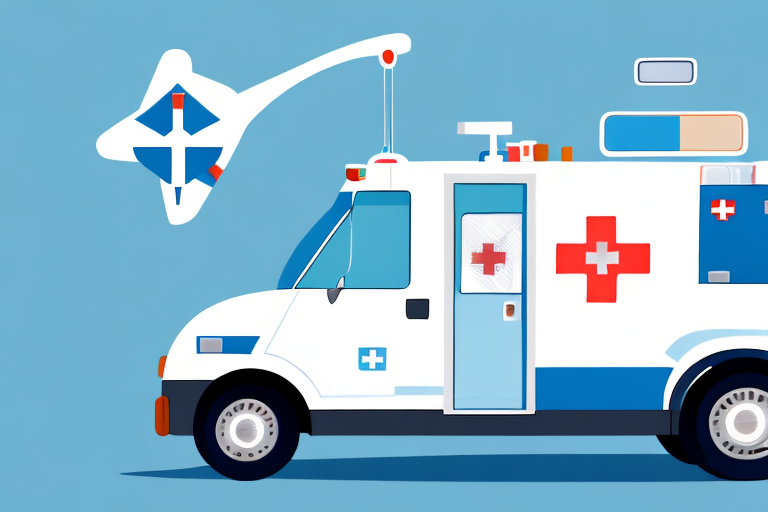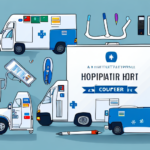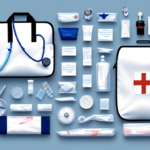Becoming an Independent Medical Courier: Comprehensive Step-by-Step Guide
Medical couriers are integral to the healthcare system, ensuring the prompt and secure delivery of medical samples, documents, and equipment. As an independent medical courier, you provide essential services to healthcare providers, hospitals, and other medical facilities by transporting vital medical supplies safely and efficiently. This guide offers an in-depth look at the steps required to become an independent medical courier.
The Role and Importance of Medical Couriers in Healthcare
Ensuring Timely and Secure Deliveries
Medical couriers are responsible for transporting medical samples, documents, and equipment securely and punctually. This reliability is crucial for the smooth operation of medical facilities and the wellbeing of patients.
Critical Deliveries in Emergency Situations
In emergencies, medical couriers deliver life-saving medications, organs for transplant, and blood products. The speed and efficiency of these deliveries can significantly impact patient outcomes.
Adhering to Strict Regulations
Medical couriers must follow stringent regulations regarding the packaging, labeling, and transportation of medical items to prevent contamination, damage, or loss during transit.
For more information on medical transportation regulations, refer to the HIPAA Privacy Rule.
Qualifications and Skills Required
Educational and Licensing Requirements
- High school diploma or GED
- Valid driver’s license and reliable transportation
- Commercial Driver’s License (CDL) if required by state regulations
Essential Skills
- Strong communication and organizational skills
- Attention to detail
- Ability to handle and transport medical specimens and equipment safely
- Familiarity with logistics and GPS tracking software
- Knowledge of HIPAA regulations and patient privacy laws
Additional requirements may include background checks, drug screenings, and maintaining a clean driving record.
Obtaining Necessary Certifications
HIPAA Certification
Understanding and complying with the HIPAA Privacy Rule is essential for handling medical information.
Bloodborne Pathogens Certification
This certification ensures awareness of the risks and safety protocols associated with transporting hazardous or infectious materials.
Hazmat Certification
Required for transporting hazardous materials, this certification focuses on the safe handling and transportation of such items.
Certification can be obtained through online courses or in-person training sessions. Requirements may vary by state, so it's important to verify local regulations.
Starting Your Medical Courier Business
Business Planning
- Define your service area and target market
- Establish competitive rates and pricing strategies
- Create a comprehensive business plan with financial projections
- Explore funding options, such as small business loans
Legal Requirements
Obtain necessary licenses and permits to operate legally. Ensure you have appropriate insurance coverage to protect your business and clients.
Building Relationships
Develop strong relationships with healthcare providers and institutions by offering reliable services and excellent customer support. Networking at industry events can help establish trust and lead to repeat business.
For more on starting a business, visit the Small Business Administration.
Legal and Regulatory Compliance
Licensing and Permits
- Obtain necessary business licenses and permits
- Comply with state and federal transportation regulations
HIPAA and Privacy Laws
Ensure all transported medical items comply with HIPAA and other patient privacy laws to protect sensitive information.
Hazardous Materials Regulations
Follow proper labeling, packaging, and handling procedures for hazardous materials to avoid legal and financial penalties.
Refer to the OSHA Hazardous Materials Standards for detailed guidelines.
Setting Rates and Pricing Strategies
Determining Your Rates
Consider factors such as distance, delivery frequency, and job complexity when setting your rates. Offering volume discounts can encourage repeat business.
Special Handling Charges
Charge higher rates for transporting items that require special handling or specific transportation conditions, ensuring coverage of additional expenses.
Compliance with Industry Regulations
Ensure your pricing strategies comply with healthcare transportation laws to avoid fines or legal issues.
Marketing Your Medical Courier Business
Effective Marketing Strategies
- Targeted online advertising
- Direct mail campaigns
- Participation in local networking events
Building an Online Presence
Create a professional website and maintain active social media profiles to attract new clients and expand your reach.
Learn more about digital marketing strategies from the Microsoft Digital Marketing Resource Center.
Future Trends and Opportunities in the Medical Courier Industry
Growing Demand for Specialized Services
The demand for specialized medical transportation services is expected to rise, driven by advancements in medical technology and increasing healthcare needs.
Technological Advancements
Adopting new technologies, such as advanced GPS tracking and automated logistics systems, can enhance efficiency and service quality.
Challenges to Anticipate
- Changing regulations
- Rising fuel and operational costs
- Intensifying competition
Staying informed about industry trends and continuously improving your services can help overcome these challenges and capitalize on new opportunities.
Conclusion
Becoming an independent medical courier involves meeting specific qualifications, obtaining necessary certifications, and adhering to strict regulations. By carefully planning your business, setting competitive rates, and effectively marketing your services, you can establish a successful and profitable medical courier business. Staying updated with industry trends and maintaining strong relationships with healthcare providers will further ensure your long-term success in this vital field.






















